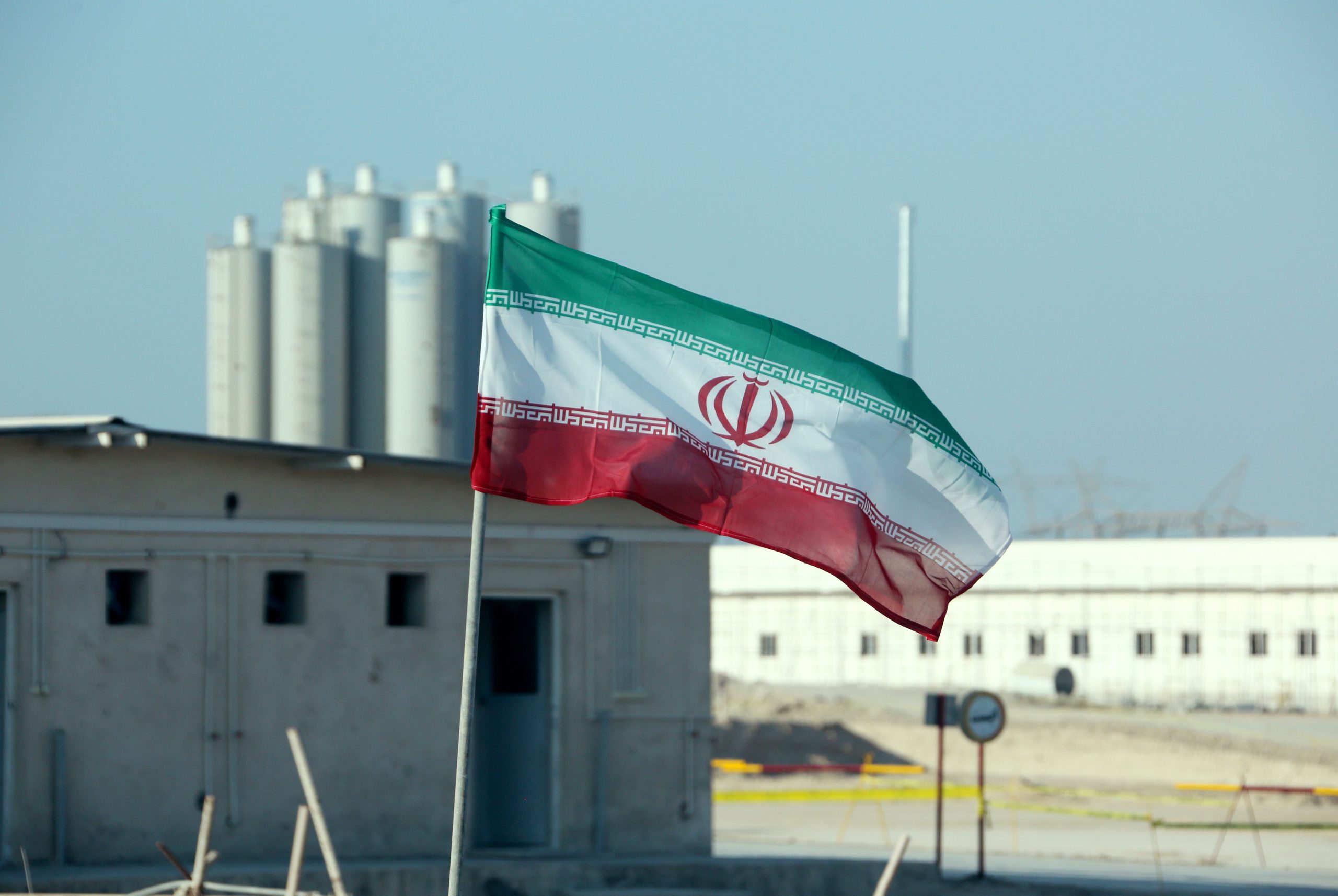Iran to Enrich Uranium at 20%, Seizes Tanker in Strait

Tensions with Iran reached a boiling point Monday after the announcement that Iran is enriching uranium up to 20 percent at an underground facility, and that the Islamic Republic seized a South Korean-flagged oil tanker in the commercially crucial Strait of Hormuz.
Iran acknowledged the seizure of the MT Hankuk Chemi, claiming the vessel’s alleged “oil pollution” induced the move. However, a South Korean diplomat was scheduled to visit Tehran to negotiate the release of billions of dollars in Iranian assets frozen in Seoul.
The twin provocative moves follow an announcement by acting U.S. defense secretary Christopher Miller Sunday that the aircraft carrier USS Nimitz would continue patrolling the Middle East and countering Iranian aggression there, instead of returning home.
“Due to the recent threats issued by Iranian leaders against President Trump and other U.S. government officials, I have ordered the U.S.S. Nimitz to halt its routine redeployment,” Mr. Miller said in a statement on Sunday night.
In “a message of deterrence to Iran,” the U.S. flew two nuclear-capable B-52 bombers to the Middle East on Wednesday.
U.S. intelligence agencies believe Iran is targeting senior American military officers and civilian leaders in order to avenge the American drone strike killing of Maj. Gen. Qassim Suleimani, the commander of Iran’s elite Quds Force of the Islamic Revolutionary Guards Corps, the New York Times reports.
President Donald Trump unilaterally withdrew from the Iran nuclear deal in 2018, and reimposed heavy financial sanctions that had previously been lifted under the deal. His administration began following a policy of “maximum pressure” to deter Iran’s “malign activity,” which set off a series of escelatory moves and countermoves in the Persian Gulf.
Ships sailing through the Persian Gulf were mysteriously sabotaged with explosives in the summer of 2019, while others were seized and held by Iran for weeks at a time. Cruise missiles reportedly launched from Iran took down half of Saudi Arabia’s oil production in September 2019. Then on January 3, 2020, President Trump ordered American drone strikes to kill Gen. Soleimani and Iraqi militia commander Abu Mahdi al-Muhandis. Iran responded with ballistic missile strikes on two bases housing U.S. forces in Iraq.
Throughout this series of increasingly aggressive measures, Secretary of State Mike Pompeo has insisted that the Trump administration was keeping the U.S. safe. He alleged there was “a bigger strategy” behind the killing of Soleimani.
“President Trump and those of us in his national security team are re-establishing deterrence—real deterrence—against the Islamic Republic of Iran,” Pompeo said last January.
In a statement titled “The Importance of Sanctions on Iran,” Pompeo argued that new sanctions introduced in November had made the world safer against Iran and that its decisions not be reversed.
Thousands of Iraqis gathered in Baghdad’s central square on Sunday chanting anti-American slogans and demanding revenge on the one-year anniversary of the killing of Gen. Soleimani and Iraqi militia commander Abu Mahdi al-Muhandis. Thousands of people also attended a mock funeral procession on Saturday.
Taken together, the protests, ship seizure, and uranium enrichment do not look like the “deterrence” or safer world promised by Pompeo. Instead, these moves indicate the continuation of the brinkmanship seen the last two years between Washington and Tehran.
On Twitter, Iran’s foreign minister Mohammad Javad Zarif blamed “Israeli agent-provocateurs” for plotting attacks against Americans.
They want to put “an outgoing Trump in a bind with a fake casus belli,” he wrote Saturday.
“Be careful of a trap, @realDonaldTrump. Any fireworks will backfire badly, particularly against your same BFFs,” wrote Zarif, a thinly-veiled threat against Israel.
Israel’s energy minister Yuval Steinitz called Zarif’s claim “nonsense.”
Since the Trump administration withdrew from the JCPOA agreement in 2018, Iran increased enrichment of uranium to 4.5 percent. An enrichment level of 20 percent would be “only a technical step away from weapons-grade levels of 90 percent,” reports the Associated Press, and it would be the highest level Iran has achieved since 2015.
Israeli Prime Minister Benjamin Netanyahu responded to Iran’s decision to enrich uranium Monday, saying it is only a short technical step away from producing nuclear weapons.
“Israel will not allow Iran to produce nuclear weapons,” said Netanyahu.
“Iran’s decision to continue violating its commitments, raise the level of enrichment and advance its industrial capacities for underground uranium enrichment can not be explained in any way other than the further realization of its plans to develop a military nuclear program,” he said.
Iran’s enrichment announcement is a critical one, as its similar decision a decade ago nearly caused Israel to respond with a strike against Iran’s nuclear facilities. These tensions only abated with the 2015 deal, the Times of Israel reports.
Iran seems to be acting under the assumption that its increasingly provocative measures will somehow provoke a softened stance in Washington.
In a tweet referencing the 20 percent uranium enrichment, Zarif wrote: “Our measures are fully reversible upon FULL compliance by ALL.”
Although the incoming Biden administration seeks a return to the JCPOA deal, there is a serious risk that relations between the two countries will further deteriorate during Trump’s last weeks in office, boxing Biden into a corner.
Comments